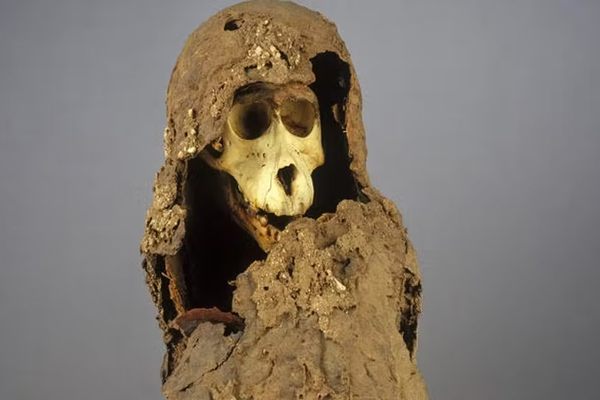A Life of Solitude Makes Yellow-Bellied Marmots Live Longer
Party animals pay the price.

The perils of not spending time with other human beings are well-documented. More than obesity, and as much as habitual cigarette-smoking, too much alone time will shorten your lifespan, give you high blood pressure, and put you at a higher risk of cognitive decline, dementia, and depression. The benefits of socializing mostly carry out into the animal kingdom, too, with macaques, baboons, and dolphins alike all profiting from more time with others of their kin.
For the yellow-bellied marmot, however, the opposite seems to be true. A study on Colorado marmots, led by Daniel T. Blumstein from the University of California, Los Angeles, published Wednesday in Proceedings of the Royal Society B, showed that more social marmots pay a hefty price for a life of companionships: an average of two years’ less in which to enjoy it.
Two years might not sound like a lot, but the maximum lifespan of these fuzzy rodents, also known as rock chucks, is only 15 years. Yellow-bellied marmots make their homes in the valleys and meadows of southwestern Canada and the western United States. They have appealingly furrowed faces, tiny humanoid hands, and those eponymous tan-colored tummies.
Rock chucks are “socially flexible”—they’d rather be on their own, but if that isn’t an option, they seem content enough to coexist if their habitat necessitates it. (Other marmots, like the groundhog, are much less social.) Though male offspring always disperse, female marmots will sometimes live in a sort of multi-female marmot commune. Here, they groom one another, forage together, sit side by side, and even greet their mar-mates on arrival.
It’s cute, but it seems to be toxic—though precisely why this behavior should have such life-shortening consequences remains in doubt. Speaking to the New York Times, Blumstein speculated that the proximity might mean that diseases are more easily spread from one to the next, or that too many bedmates could cut short a crucial hibernation period. It may also be that all that time at play is a distraction from a far more important task—looking out for predators. “There are a variety of plausible explanations,” he said. “I just don’t know what they are yet.”

















Follow us on Twitter to get the latest on the world's hidden wonders.
Like us on Facebook to get the latest on the world's hidden wonders.
Follow us on Twitter Like us on Facebook